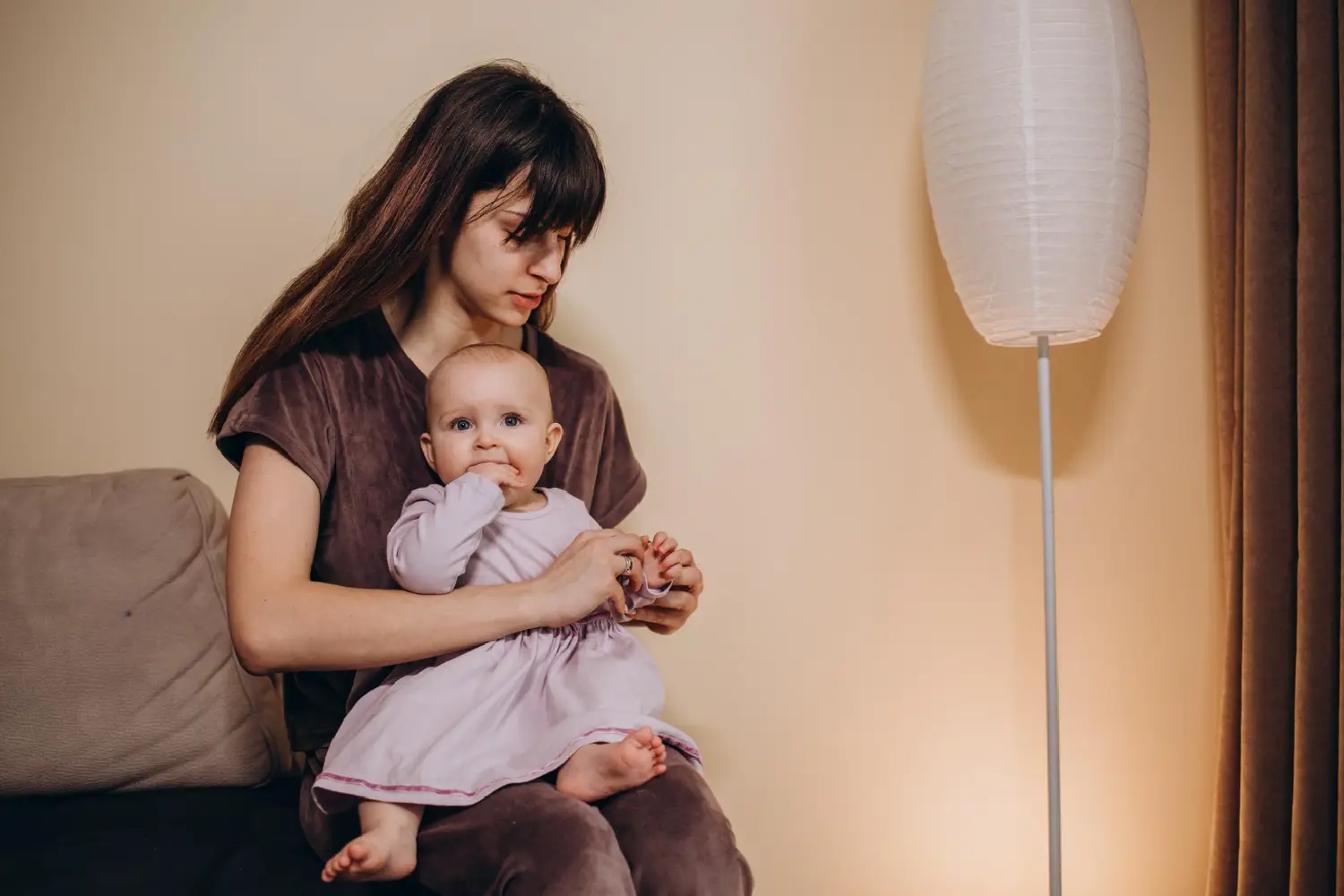Postpartum Depression (PPD) is a serious mental health condition that affects mothers after childbirth. Unlike the temporary “baby blues” that often occur in the first few days post-delivery, PPD can last for weeks or months and significantly impact a mother’s emotional well-being, daily functioning, and bonding with her newborn.
PPD is not a sign of weakness or a reflection of one’s abilities as a mother. It is a medical condition that requires understanding, care, and timely support. With proper guidance, counseling, and treatment, recovery is possible, allowing mothers to regain confidence, emotional stability, and the joy of nurturing their child.
Onset and Duration
Recognizing the Symptoms
Importance of Support and Treatment
Recognition of PPD
Postpartum Depression can manifest in a variety of emotional, behavioral, and physical ways. Recognizing these symptoms early is crucial for timely support and intervention.
Emotional Symptoms
Deep emotional distress affecting mood and outlook.
Persistent Sadness or Hopelessness
Heightened Irritability or Anger
Overwhelming Anxiety or Fear
Behavioral Symptoms
Noticeable changes in habits, social life, and caregiving behavior.
Loss of Interest in Activities
Social Withdrawal
Difficulty Bonding with the Baby
Physical Symptoms
Bodily signs reflecting mental and emotional exhaustion.
Constant Fatigue or Low Energy
Disturbed Sleep Patterns
Appetite and Body Discomfort
Critical Warning Signs
Severe symptoms that need immediate attention and support.
Thoughts of Self-Harm or Harming the Baby
Severe Anxiety or Panic Episodes
Inability to Care for Self or Baby
Postpartum Depression affects not only the mother’s mental and physical well-being but also the overall health of the family. Understanding the broader impact highlights the importance of timely support and intervention.
Postpartum Depression (PPD) deeply affects a mother’s emotional, physical, and social well-being. It can interfere with her ability to care for herself, connect with her baby, and maintain daily balance — but with understanding, support, and timely care, recovery is completely possible.
Emotional Strain
Persistent sadness, anxiety, and feelings of inadequacy can affect daily functioning and self-esteem.
Bonding Challenges
Difficulty forming emotional connections with the baby may affect early bonding and maternal confidence.
Physical Health
Fatigue, sleep problems, and appetite changes can delay physical recovery and reduce overall energy.
Career & Social Life
Struggles in returning to work or socializing can lead to isolation and stress.
PPD doesn’t only affect the mother — it touches the entire family system. Partners, relatives, and even children can feel emotional and practical strain. Awareness, open communication, and shared responsibility can help the family heal together.
Partner & Relationship Strain
Emotional distance or misunderstandings may weaken communication and mutual support.
Child Development
Lack of consistent emotional care can influence the baby’s growth and security.
Family Dynamics
Loved ones may feel stressed or unsure about how to help while managing their own roles.
Household Functioning
Routine tasks and responsibilities may become challenging, leading to family imbalance.



